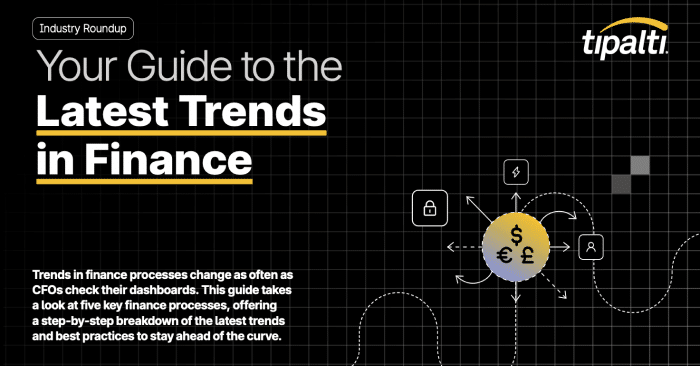
Finance trends shift fast—explore 5 key processes & tips to stay ahead.
Fill out the form to get your free eBook.

Trends in finance processes change as often as CFOs check their dashboards. This guide takes a look at five key finance processes, offering a step-by-step breakdown of the latest trends and best practices to stay ahead of the curve.
Angela Brown’s journey to becoming a finance leader isn’t typical. After earning a degree in Biochemistry and Molecular Biology, she worked as a research scientist before pivoting to a career in accounting and finance via the audit route.
She now runs FinFlare, a boutique organisation that provides fractional CFO services from startups to scaleups.
Training to Be a Scientist
Nick Levine: You started your career as a scientist. How long was this for?
Angela Brown: I was a research scientist for around five years. Part of this time was spent working for the British Heart Foundation, which funded my PhD at Edinburgh University.
Nick Levine: Presumably, you must have become dissatisfied at some point to make the switch to finance. What was it that led to this?
Angela Brown: As a scientist, you don’t have much stability, as many jobs are on short-term contracts. Despite going down the scientist route, I really disliked it immensely. I decided to train as a chartered accountant in Edinburgh back at the turn of the 21st century. That’s how old I am.
Switching to Finance
Nick Levine: Anecdotally, very few people set out in life to become accountants. What was it that attracted you to this second career?
Angela Brown: I had a really good friend who worked in the industry as a financial controller, and she told me how interesting it was and how being a finance partner allowed you to grow businesses by demonstrating commerciality. The stability in terms of earning power was appealing, too.
Nick Levine: You then started your accounting career in audit. Was this, as you thought it would be, an eventual springboard to working in the industry?
Angela Brown: Pretty much. I trained at a firm that is now part of Azets, then I joined Mazarst, and that gave me really broad experience. I was primarily in the audit department, but you do learn a lot. I learned how to deal with people, how to get difficult information out of them, and how to analyse them.
Harnessing the Power of ADHD
Nick Levine: Did this deep and varied experience at Mazars give you the tools to become a fractional CFO eventually?
Angela Brown: Yes, absolutely. The business was growing rapidly in Scotland, and they needed people who could jump in and solve problems. I learned to embrace the chaos and fix things. On reflection, I’ve recently discovered I have ADHD, and I can see now why I tend to thrive in these environments.
Nick Levine: So you see your ADHD as an advantage?
Angela Brown: Yes. While I’m process-led and detail-driven, like other accountants, my real superpower is my ability to thrive in chaotic environments, thanks to the way my brain is wired.
Establishing FinFlare
Nick Levine: Tell me about FinFlare and what your specialism is?
Angela Brown: I set up FinFlare in 2021 after a period of being a self-employed fractional CFO. We’re now a team of six, and we’re just about to recruit another full-time person. We work exclusively with investment-backed businesses. Due to the nature of the work we do, clients tend to be in technology, software, and AI. They are very innovative companies that are building a product or digital service. Our edge is that we know this space really well, especially the early high-growth stage.
Nick Levine: I imagine these types of businesses require a diverse range of support. What services do you offer them?
Angela Brown: We provide an entire outsourced finance function for our clients. This includes looking after the transactional side—such as bookkeeping, payroll, and payments—right through to advisory services, including investor reports, raising funds, maintaining the financial model, and managing cash flow.
Nick Levine: The funding environment has changed a lot over the last couple of years, with downward pressure on valuations. Has this changed the nature of your engagements?
Angela Brown: Yes, we are finding that the cash runway needs to be stretched as far as possible. In some instances, this requires us to provide weekly cash forecasts. Also, in terms of supporting fundraises, while revenue is still of high importance, we’re finding we are working more with clients to demonstrate a pathway to profitability within their suite of KPIs.
Reducing Headcount by Automating AP
Nick Levine: I would expect your client base to be tech savvy, but do you have an example of where you have introduced finance automation to a company that has allowed them to reap benefits?
Angela Brown: We have a software licence company client that sells its licences on an annual basis. Incredibly, they were processing all their purchase invoices and expenses manually when they came in. We initially engaged with them on an interim basis because they were struggling to recruit externally to help manage the workload.
Nick Levine: How did you automate their processes?
Angela Brown: We implemented a data capture tool that sent invoices and expenses to a centralised mailbox and linked this to Xero. We also used a payments automation tool. This was a quick win, as it increased throughput in the system and drastically reduced manual processing.
Nick Levine: What happened with their hiring plans?
Angela Brown: As a result of our work, they didn’t make the additional hire. We’ve now taken on the client on an ongoing basis, managing their accounts payable, amongst other processes.
Feeling motivated by Angela’s journey from scientist to fractional CFO? Continue the momentum by reading another profile in our Next Gen Finance Leaders series.
